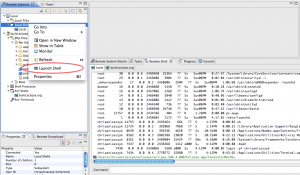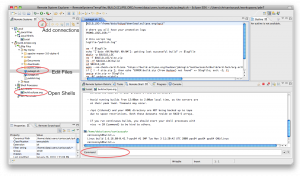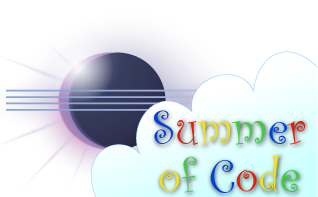According to this article, Integrated Development Environments (IDE) are like cockpits…

I kind of agree, except my IDE doesn’t have missiles (yet)…
Now, at last, hardware design teams can use Eclipse as a basis for their own customized IDEs, based on the commercial and open-source plugins that they need in their central cockpit for hardware design.
…
During dogfights (one-on-one acrobatic fights), a fighter jet pilot needs to keep his attention focused on the enemy aircraft. He cannot afford to keep looking down at his dashboard in order to check his weaponry status. Instead, he uses what is known as a Head-Up Display (HUD). This display consists of a transparent screen through which the pilot looks at his opponent. At the same time, the HUD projects extra information like air speed and altitude on the screen. This way, the pilot can keep his head up and remain looking at the surrounding environment, while still keeping track of critical data.
…
A HUD is not a substitute for pilot skills, but it enhances the pilot’s capabilities to levels that are unreachable without this technological support.
…
Software engineers, like hardware designers, continuously work with code, documentation, build scripts, and logs. What can they use as their cockpit?
I kind of like the analogy of having a central console (and missiles). I don’t like the analogy in the sense that a cockpit also implies complexity. I think that IDEs aim to simplify people’s workflows instead of making the more complex. The only thing complex is the initial learning curve required to learn the instruments. What do you think?
Anyways, give the article a read… it talks about the success of Eclipse in the embedded software development space and how Eclipse is now being used in hardware design due to Sigasi (a startup that focuses on Eclipse-based VHDL tools). I actually met the Sigasi folks in person at the last Eclipse Summit Europe and we went for a nice jog around Ludwigsburg. Small world, eh?
I can only wish them success as the Eclipse ecosystem is all about supporting companies like this.








